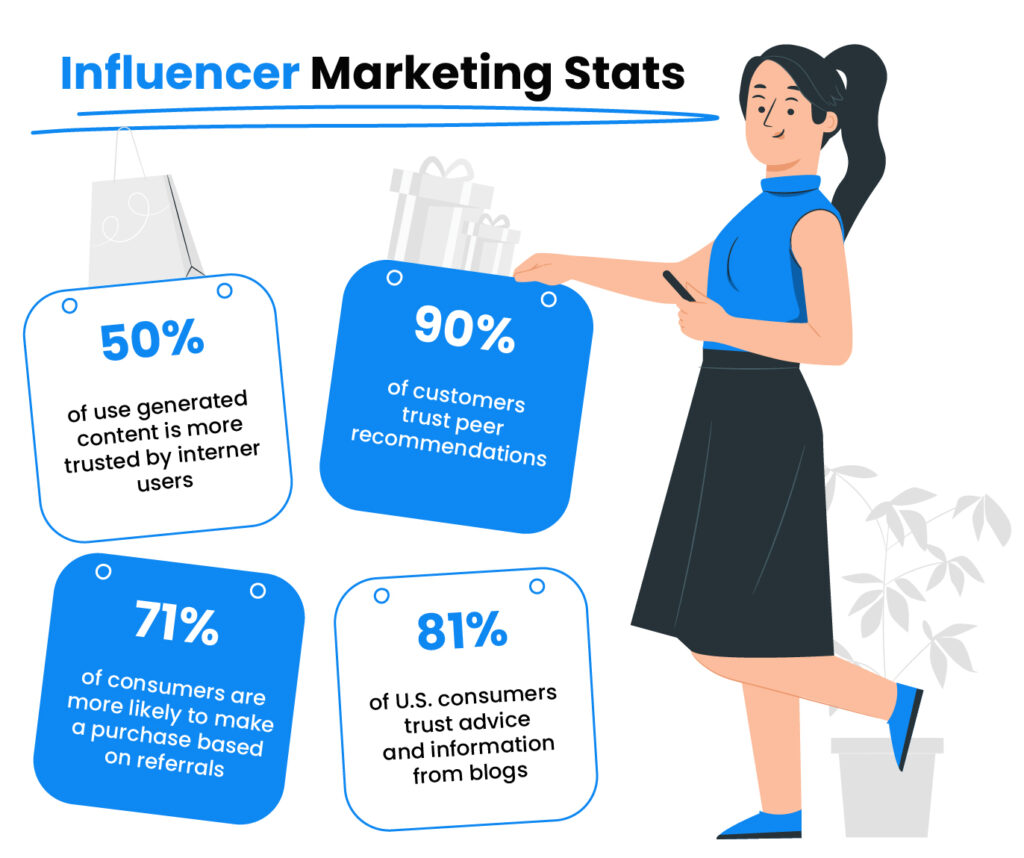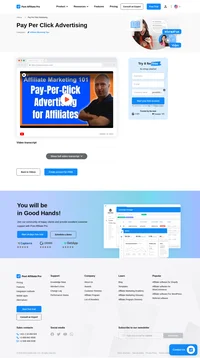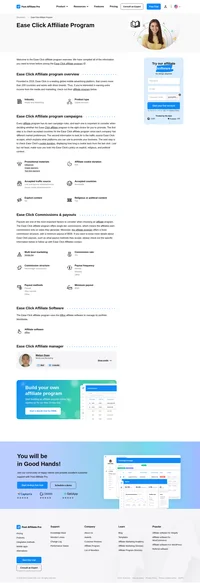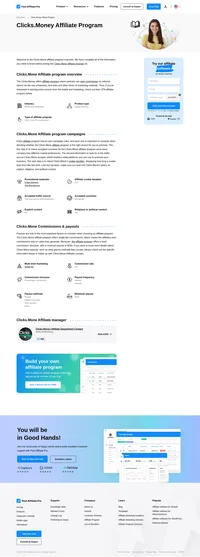Heard about Pay-Per-Click advertising (PPC)? Curious to know more? Wondering why people keep dismissing it? Want to know if it will work for you or if you should try an alternative advertising strategy?
The internet is packed with examples of businesses who are doing very well online – as well as businesses who aren’t doing so well. There are many variables involved, but for a lot of us it all comes down to our marketing efforts.
In this article, we’ll be covering what PPC is, why it can work and why it sometimes can’t work, as well as what your alternative options are.
What Is Pay per Click?
PPC is an internet marketing model in which an advertiser pays a fee every time their advert is clicked.
They place an ad on a search engine’s results, and whenever someone clicks on it, they pay the search engine a fee. The fee is usually small and often trivial, but its ROI can be huge.
For example, let’s imagine that a company invests $500 in PPC campaign and is paying $5 per click. If only one person clicks on their ad and goes on to make a $500 purchase on their website, the company has just made a 100% return on their ad spend. Not to mention that company also got to 99 other people who have shown interest and might get back and purchase a product in the future.
Essentially, advertisers are “buying” visitors to their site. In this way, it’s the exact opposite of growing an audience organically.
However, as with all internet marketing models, a lot of effort needs to be made before we score results with PPC. Let’s take a look at why you might or not use PPC. Similar to the process of gaining organic traffic, PPC campaigns have their pros and cons, and can be useful in every field that wants to extend their reach. A digital marketer for a software company is just as likely to use paid advertising as a law firm would to expand their client base. Regardless, further research should be done in order to understand the benefits and setbacks you may encounter throughout the advertising process.
Let’s take a look at why you might or might not use PPC.

Pros and Cons of PPC
Pros:
You Set Your Budget
PPC sounds a bit scary to cash-strapped businesses: What happens if everyone clicks your ads? Will you lose a fortune?
Nope. With PPC, you can change your budget whenever you want.
PPC Gets Your Page Seen
With PPC, your ads will appear at the top of the search results. They might not get clicked, but they’ll be visible.
PPC Lets You Target The Right Audience
There’s no need to worry that the wrong people will be clicking your ads, therefore costing you lots of cash. PPC marketing lets you target the right people so that your chance for conversion increases.
For example, if you can target buyers in heat, 65% of them will click on a paid ad.
Cons:
There Is No Guarantee That This Will Work
Just because someone has clicked your ad, it doesn’t mean this prospect will convert into a customer. In fact, getting them onto your site is just one challenge; the next challenge is to convince them to stay and take action.
Moreover, paid ads get a click-through rate of just 2%.
The Cost of Keywords Can Get Expensive
As mentioned earlier, the fee per click is usually small – but the fee is dependent on how competitive a keyword is. If competition for a particular keyword is fierce, you might get roped into a messy bidding war.
PPC Takes Time To Get Right
PPC should be viewed as a long-term marketing strategy. It can lead to some results almost instantly, but a steady increase in traffic will be built up over a longer period of time. You could be waiting as long as 6 months until you get the results you want.

Do We Recommend PPC?
We recommend paid search if you have a strong budget and you’re prepared to wait for the right results. It’s an excellent addition to a long-term marketing strategy that also brings quick, if modest, results; it lets you jump into the market and start selling almost straight away.
Moreover, it gets people onto your page.
That said, some industries are better suited to PPC than others. For example, finance and insurance industries have a click-through rate of 2.65%.
However, in 2018 there are other marketing options available that are more affordable, creative and, in many ways, more personal. If your budget isn’t huge but you have time on your hands and want to make a proper connection with your customers, check these out:
Email Marketing
Email marketing is an evergreen type of internet marketing that’s been around since emails were invented, and which will be around for a long, long time to come.
With email marketing, the premise is simple: You gather together all of your customers in one place before promoting your products to them. It’s fairly easy to do, and it works.
However, unlike PPC, there is a LOT more effort involved. Getting people to subscribe to your list in the first place can be tricky, and usually requires you to offer some sort of free gift, so-called lead magnet. Once on your list, you then need to work hard to keep them there with frequent emails.
On the other hand, email marketing enjoys a better average click-through rate than PPC of over 4%.
Content Marketing
Millennials are dominating the economy; they’re the biggest generation in America and, unlike their forefathers, they don’t like to be sold to. Instead, they want to be involved in a proper marketing campaign.
For this reason, PPC ads might not cut it with millennials – especially when you consider ad fraud and ad blocking.
This is where content marketing comes in.
Through content marketing, you can immerse your audience in a proper marketing campaign. You can use content to build trust, rapport and develop a strong, lasting relationship with people.
Naturally, a compelling marketing campaign demands resources, time and effort. It also demands that you combine it with a strong SEO strategy for best results
Influencer Marketing
Millennials might be wary of ads – but they’re not typically wary of their internet heroes.
Influencers are a big deal on the internet. They have a lot of power and can theoretically make or break a brand. If an influencer recommends your product to their audience, you can be sure that their audience is going to check you out.
An influencer has something you might not have yet – an audience who trusts them. If they trust them, they’ll trust their recommendations.

You don’t have to aim for the online behemoths. Micro influencers on Instagram have a few thousand followers, but they can still represent a huge foot in the door for small businesses.
And unlike PPC, influencer marketing usually doesn’t involve cash. If you give an influencer a free gift or build a strong relationship with them, there’s a good chance they’ll give your product a shout-out to their followers.
We hope you understand PPC better now and are clearer about where to dedicate your budget and time. Got any questions? Feel free to leave us a comment below.
Share this article
How much should you pay your affiliates?
Discover the secrets to setting competitive affiliate commission rates with Post Affiliate Pro. Learn essential strategies for conducting research, analyzing industry benchmarks, and choosing the best payment methods to ensure satisfaction for both you and your affiliates. Maximize your profits while keeping affiliates motivated and engaged.
Clicks Revenue Affiliate Program
Join the Clicks Revenue Affiliate Program to maximize your ROI with a performance-based network specializing in media and marketing. Earn commissions through CPL campaigns and access promotional materials like banners and social media ads. Enjoy worldwide reach, fixed commission structures, and a minimum payout of $200. Sign up today for monthly payouts via digital currencies or wire transfer.
Affiliate marketing for beginners
Discover the essentials of affiliate marketing for beginners with Post Affiliate Pro. Learn how to build an audience, create engaging content, and use marketing channels to earn commissions. Unleash your passion for your niche, showcase products through video, and boost sales with special deals. Dive into the world of affiliate marketing today!
Join the Ease Click Affiliate Program, a leading global mobile advertising platform since 2019, covering over 200 countries. Earn commissions through digital services with a minimum payout of $500. Benefit from single-tier commissions, flexible payout methods, and weekly or monthly frequencies. Explore a world of media and marketing opportunities with Ease Click's trusted platform today!
Clicks.Money Affiliate Program
Join the Clicks.Money Affiliate Program to earn commissions through innovative digital marketing strategies. With worldwide acceptance and no explicit content, promote via banners and links. Enjoy a fixed 5% commission rate with weekly or monthly payouts starting at $250. Explore how you can maximize your earnings in the media and marketing industry today!












